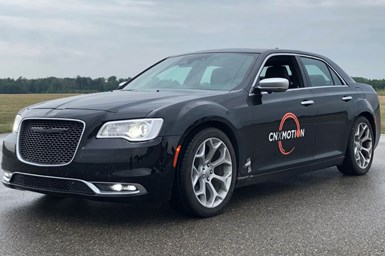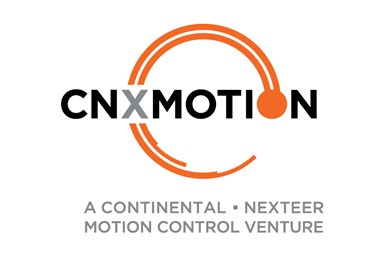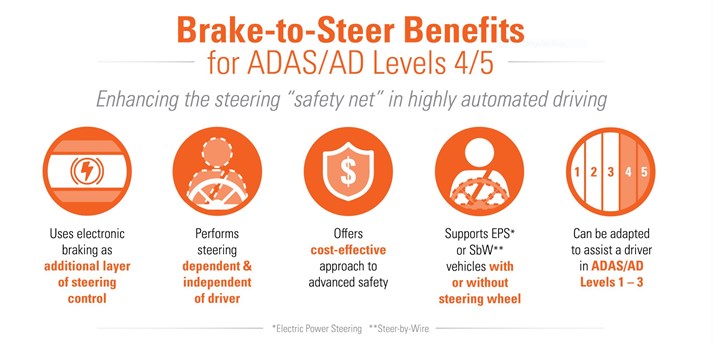Conti-Nexteer JV Readies "Brake-to-Steer" Tech
Redundancy is good for automation
#robotics
The thinking behind CNXMotion, a 50:50 joint venture created in 2017 by Continental and Nexteer Automotive, was to develop next-generation technologies that integrate and enhance the parent companies’ braking and steering capabilities.
Grand Blanc, Mich.-based CNXMotion is taking the first step in this direction with its Brake-to-Steer (BtS) system, which provides redundant actuation during autonomous driving.
How It Works
In vehicles fitted with Continental’s brake-by-wire technology and Nexteer’s electronic power steering (EPS), a new cross-domain Motion Control System (MCS) and Performance Manager monitor and share information between the two functions.

(Images: CNXMotion)
If a problem with the EPS is detected during autonomous driving, BtS can be used to steer the vehicle by applying brake pressure on the appropriate front wheel in the intended direction.
This allows vehicles to be automatically slowed and steered to the side of the road to await help, CNXMotion says. If needed, a vehicle can be stopped within a lane or temporarily continue driving until it can be safely pulled over.
Described as an intermediary between a vehicle’s automated driving system and actuators (i.e., brakes, powertrain and steering functions), the MCS engages BtS when needed and determines the best path forward.
Integrated Benefits
By leveraging existing braking and steering systems, the supplier says, BtS can provide cost-effective redundancy without the need for additional hardware. Separate controllers are maintained for the core braking and steering functions.

The integrated system builds on current lane-keeping technology, which uses the brakes to nudge vehicles back in place. But BtS is said to be more sophisticated, enabling greater maneuverability, handling and steering feel.
BtS can be used across a wide range of operating parameters, according to Alan Davis, who heads the joint venture. “We continue to investigate different brake strategies to find the most optimal way to safely turn the vehicle at all operating vehicle speeds.”
Multiple Levels
CNXMotion envisions the system initially being used during emergency situations with Level 4/5 autonomous vehicles, including those without a steering wheel or brake pedal.
“As we progress toward higher levels of automation in vehicles, secondary and tertiary redundancy becomes crucial in executing successful minimum risk maneuvers,” says Hiren Desai, head of strategy, autonomous mobility and safety, Continental North America.

The partners also are developing applications to enhance current advanced driver-assist systems in semi- and highly automated vehicles. In addition to providing redundancy in case of a system failure, BtS can be applied as needed if the driver doesn’t take back control when prompted to do so.
BtS provides an additional layer to enhance the overall “safety net,” adds Nexteer CTO Robin Milavec. “While steering traditionally manages the lateral control of a vehicle, Brake-to-Steer enables braking to contribute to lateral control as well.”
What’s Next?
CNXMotion has demonstrated BtS to several carmakers and its parent companies are ready to work with OEM partners on further development.
No timeframe was given for commercialization. But the potential benefits are clear.
“Perhaps the most critical challenge in highly automated and autonomous driving is ensuring the robustness of system redundancies to keep drivers, passengers and road users safe,” Davis says. BtS, he notes, “offers another steering safety layer for a wide range of automated driving conditions.”
RELATED CONTENT
-
Cobots: 14 Things You Need to Know
What jobs do cobots do well? How is a cobot programmed? What’s the ROI? We asked these questions and more to four of the leading suppliers of cobots.
-
Increasing Use of Structural Adhesives in Automotive
Can you glue a car together? Frank Billotto of DuPont Transportation & Industrial discusses the major role structural adhesives can play in vehicle assembly.
-
On Automotive: An All Electric Edition
A look at electric vehicle-related developments, from new products to recycling old batteries.








